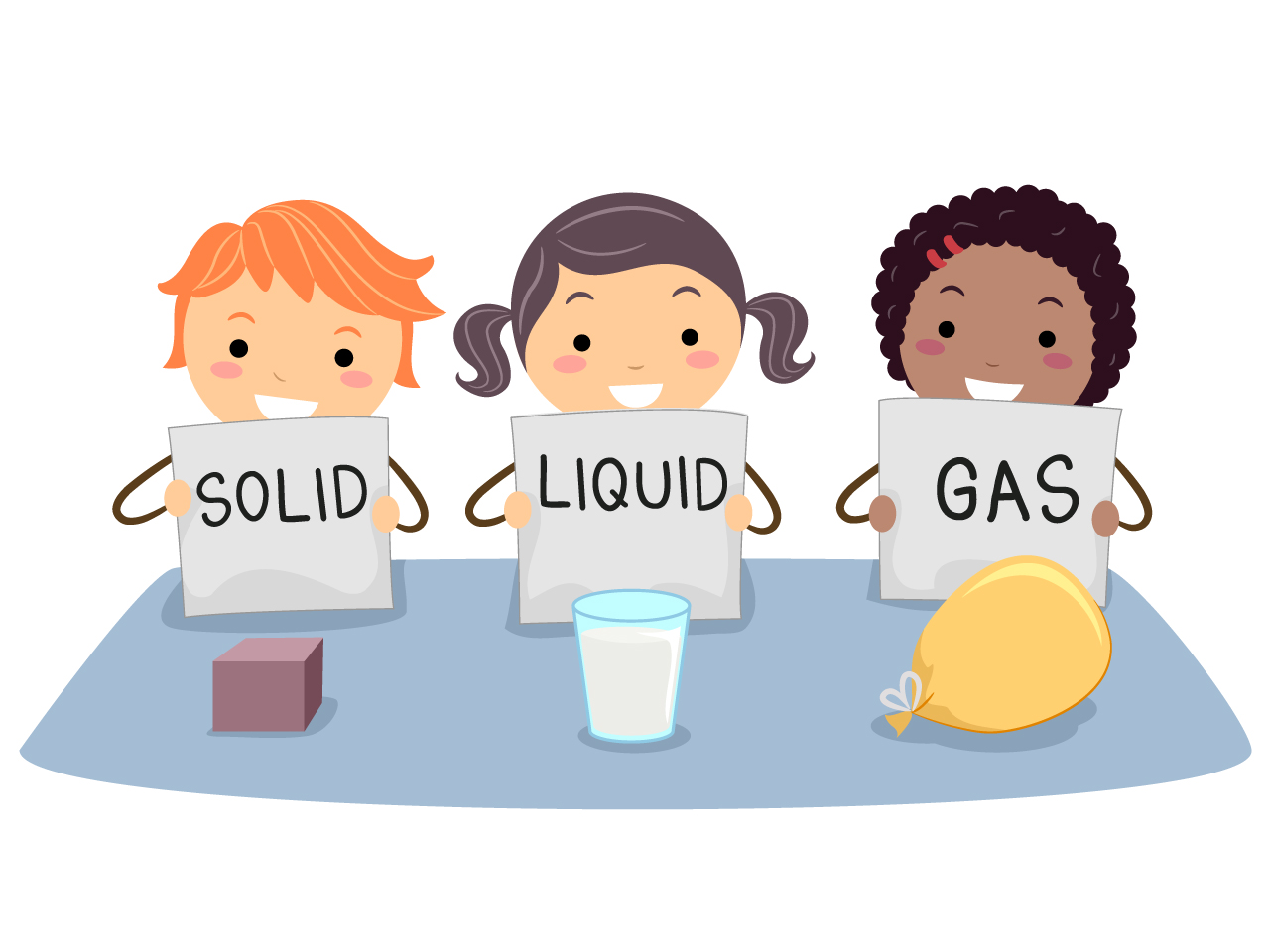Understanding magnetism Normal Physical Science Worksheets for Ages 7-9
4 filtered results
-
From - To
Dive into the fascinating world of magnetism with our "Understanding Magnetism" Normal Physical Science Worksheets, designed especially for ages 7-9. These engaging and educational worksheets help children understand and explore magnetic forces, attract and repel concepts, and much more through fun activities and experiments. Each worksheet aligns with learning standards, ensuring a thorough comprehension of the subject. Our materials create an interactive learning experience, fostering curiosity and scientific skills essential for young minds. Perfect for classroom or home use, they offer a captivating way for kids to discover the magic of magnetism. Start exploring today!
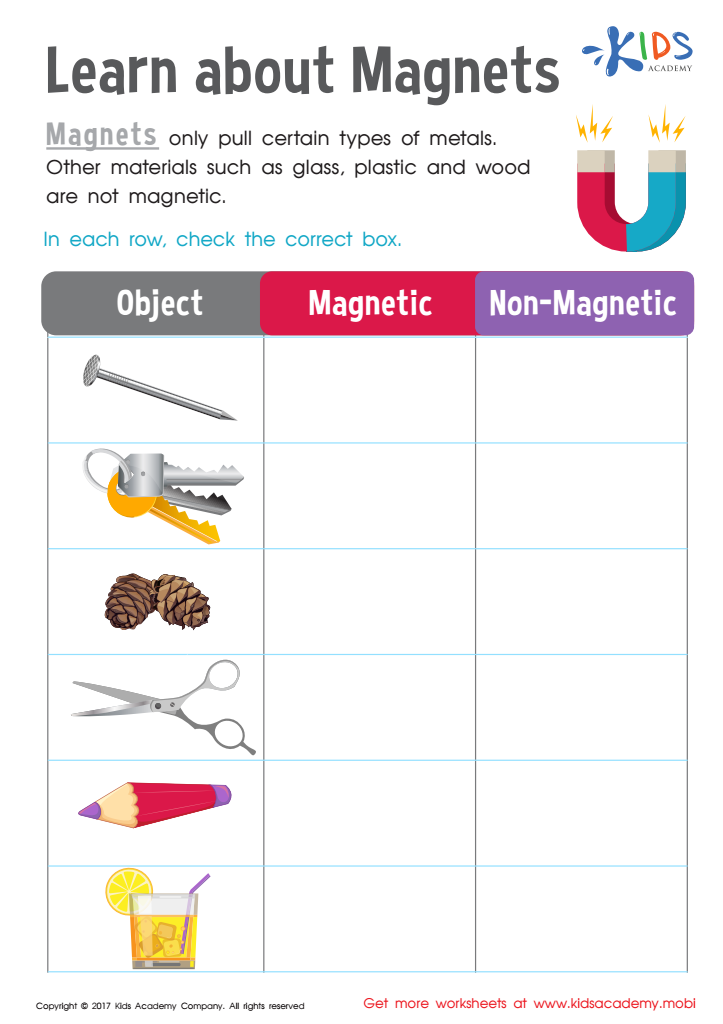

Magnetic Or Not Worksheet
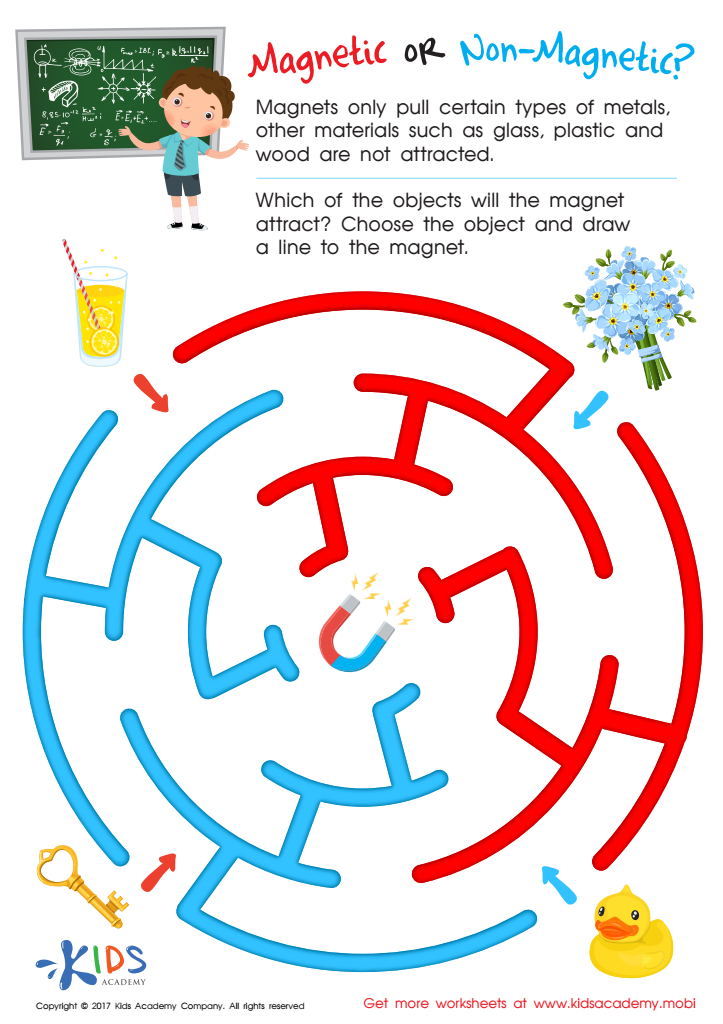

Magnetic or Non–Magnetic Worksheet
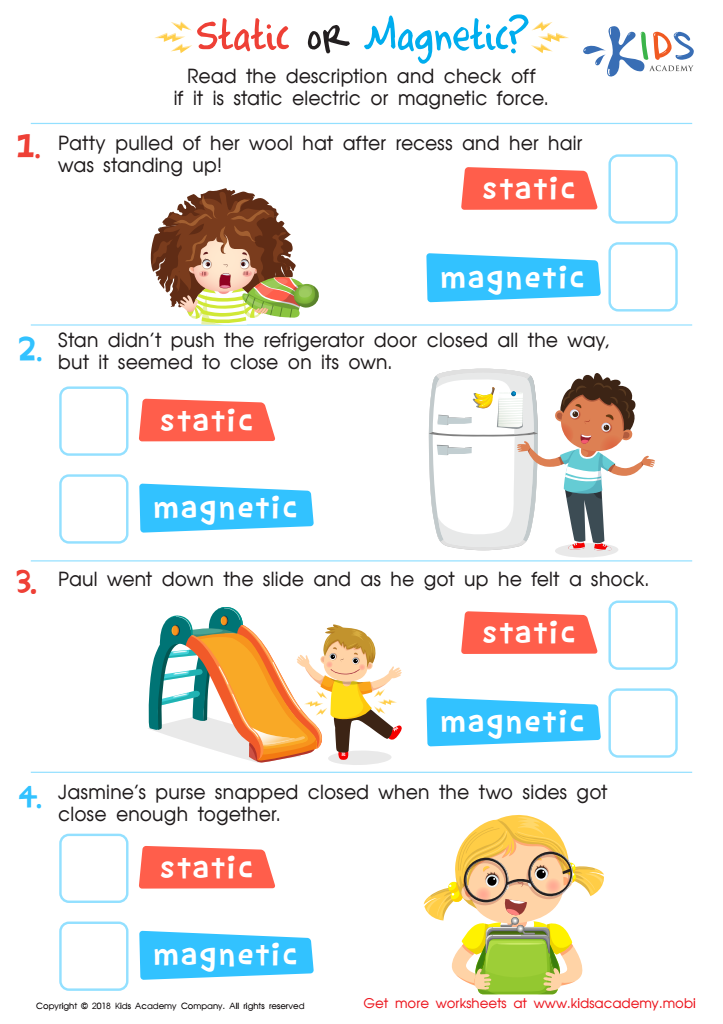

Static or Magnetic Printable Worksheet
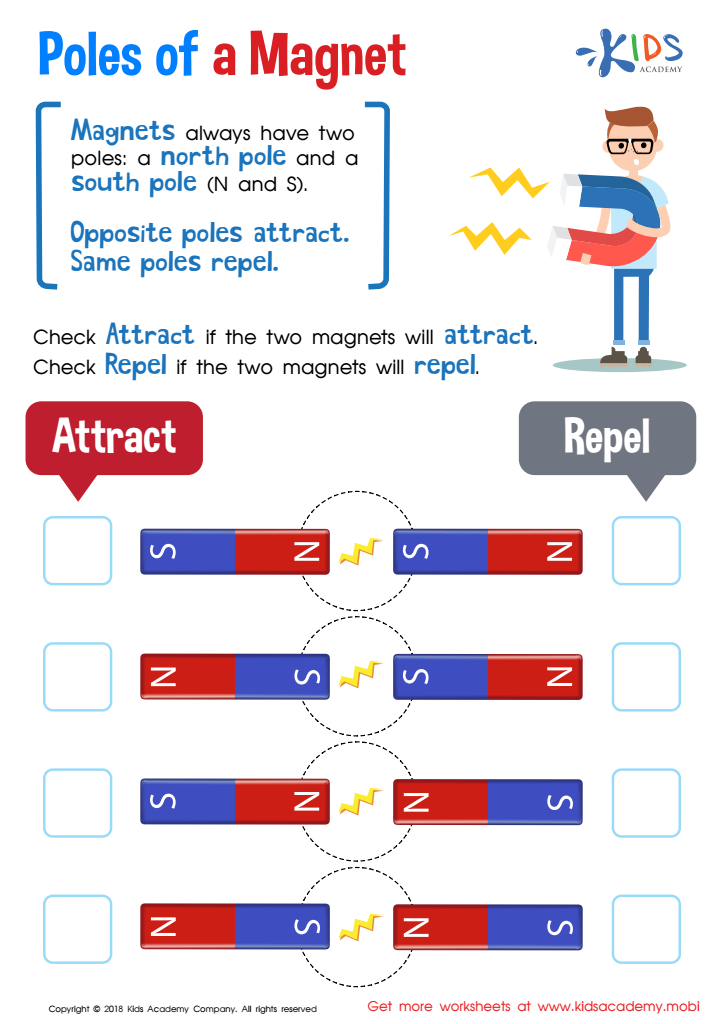

Magnet Poles Attract or Repel Worksheet
Understanding magnetism is important for young children (ages 7-9) because it helps lay the foundation for essential scientific concepts and fosters a sense of curiosity about the world. When parents and teachers introduce children to magnetism, they are not just teaching a topic on physical science; they are also promoting critical thinking, problem-solving, and observational skills.
Magnetism is an accessible and engaging way for children to learn about the invisible forces that shape our daily lives, such as the Earth's magnetic field, which affects navigation and animal migration. Hands-on activities with magnets can captivate young minds, making abstract concepts more concrete and understandable. For instance, experiments with magnetic poles, and attracting and repelling objects, show cause-and-effect relationships and introduce basic principles of physics.
Moreover, learning about magnetism can ignite a broader interest in science and technology, encouraging lifelong learning and curiosity. It supports foundational skills in STEM (Science, Technology, Engineering, and Mathematics) education, which are increasingly important in our technology-driven society.
By fostering an understanding of and enthusiasm for magnetism at an early age, parents and teachers help kids develop critical academic skills applicable to various disciplines. This foundational knowledge not only contributes to their intellectual development but also equips them with the confidence and interest to explore more complex scientific ideas in the future.
 Assign to My Students
Assign to My Students







